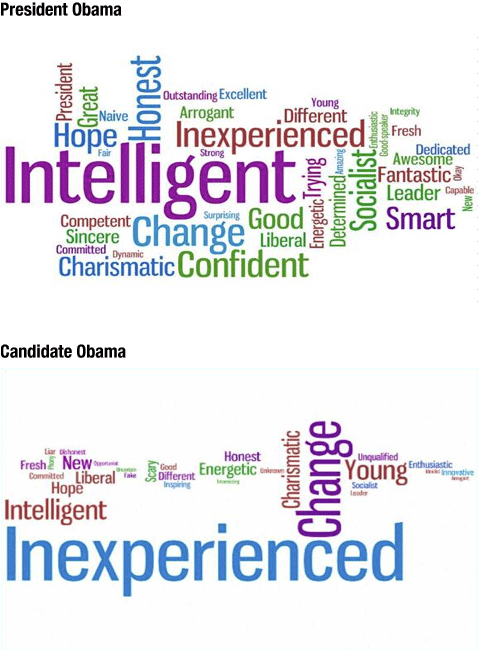The fallout from Hillary Clinton's uncharacteristic stumble during her visit to the Dragons' (of Drexel U) lair on Tuesday night continues, with the media and her Democratic rivals seizing upon a perceived vulnerability: the desire to straddle multiple sides on difficult issues. Whether or not this is a big enough obstacle to derail the Hillary Nomination Locomotive is yet to be seen.
More troubling is the repercussions of this narrative taking hold and becoming the GOP battering ram in a general election battle throughout 2008. Will the "Clintonian straddle" become this cycle's version of the "Kerry flip-flop?" Clinton's ultimate success may rely on just how "sticky" this moniker becomes.
Prior to Tuesday evening, the traditionally fractious Democratic race was too placid and agreeable to feed the American appetite for -gossip- news. All the "action" appeared to be on the Republican side.
The media, whose sense of boredom with the Dem nomination battle was becoming palpable, has eagerly embraced the new dynamic and is delighted to be able to report on an "Obama surge" (if it materializes), a "re-energized Edwards," a suddenly "vulnerable Clinton" - ANY new storyline that helps them fill the ever-more-hungry and insatiable 24-7-365 news cycle. I've always believed the biggest obstacle to any Democratic presidential frontrunner in today's news environment is a bored (or pissed off) media.
ABC News' Teddy Davis and Nancy Flores described the Clinton's straddle "downright excrutiating." Adam Nagourney over at the NY Times reports on Hillary's morning after damage control and how her team views the non-answer at the debate as her biggest mistake of the campaign that holds "long-term potential to undermine her candidacy."
Team Clinton's damage control was swift, but I'm not convinced it was entirely effective. The strategy was clear: divert, defend, and clarify.
The diversion was a big union endorsement. It was smart to roll out the AFSCME news. The government workers could provide a huge lift in the early states. Union leader Gerald McEntee provided the line of defense - clearly happy to be the surrogate rushing to Hillary's side - when he said:
“Six guys against Hillary,” he said. “I’d call that a fair fight. This is one strong woman.”
McEntee was picking up the campaign's talking point that Hillary was being ganged up on by her opponents. The WaPo reports "her advisers argued that the "pileing on" engaged in by an all-male field of opponents will ultimately drive more female voters into her camp."
I believe this is a somewhat risky move. Doesn't this defense undermine one of the tenets of the Clinton rationale? One of the foundations the campaign has built its frontrunning status upon is she has dealt with the right-wing smear campaigns for nearly two decades. She's tough. She knows how to handle attacks. Complaining about a relatively minor intraparty "pile-on" may garner sympathy but it also risks raising the question, "just how tough will she be next summer and fall?" It may help her win the nomination, but may ultimately weaken her in the general election. This victim card should only be used sparingly, and only by surrogates.
Lastly, her efforts at clarifying her position seems to have caused only more confusion. The Times' Nagourney writes:
“Senator Clinton supports governors like Governor Spitzer who believe they need such a measure to deal with the crisis caused by this administration’s failure to pass comprehensive immigration reform,’” her campaign said.
Mrs. Clinton’s aides said her statement was intended to signal that she broadly supported Mr. Spitzer’s goal of awarding driver’s licenses to illegal immigrants. Mr. Spitzer initially proposed a blanket program of awarding full-fledged driver’s licenses to illegal immigrants; in the face of sharp opposition from the Legislature, he backed off and presented a two-tier program system of awarding licenses to illegal immigrants.
Mrs. Clinton’s advisers said that she had not studied either plan, and was not specifically endorsing either of them.
Still, the wording of the statement was murkier than what many of her opponents have said in either supporting or opposing Mr. Spitzer’s initiatives. Among those opposing it were Senator Christopher Dodd of Connecticut; Senator Barack Obama of Illinois supported it. (emphasis added)
One of the cardinal rules of presidential campaigns is making sure negative stories do not remain in the media spotlight over multiple news cycles. Providing a clear (even if unpopular) position would be the quickest way of achieving this goal. Team Clinton may have believed this is what they were doing, but if the NY Times is still unsure of where she stands on this contentious issue, you better believe her rivals for the nomination will keep pounding away at this theme on the campaign trail.
The charge of "talking out of both sides of your mouth" is easy to level when a candidate has her eye on both the primary and general elections. Sen. Clinton should focus on winning the nomination first. The nominee (whoever it is) will have ten solid months to focus on defeating the Republicans.

"Just because you do not take an interest in politics doesn't mean politics won't take an interest in you”
Pericles
Pericles
Subscribe to:
Post Comments (Atom)




No comments:
Post a Comment